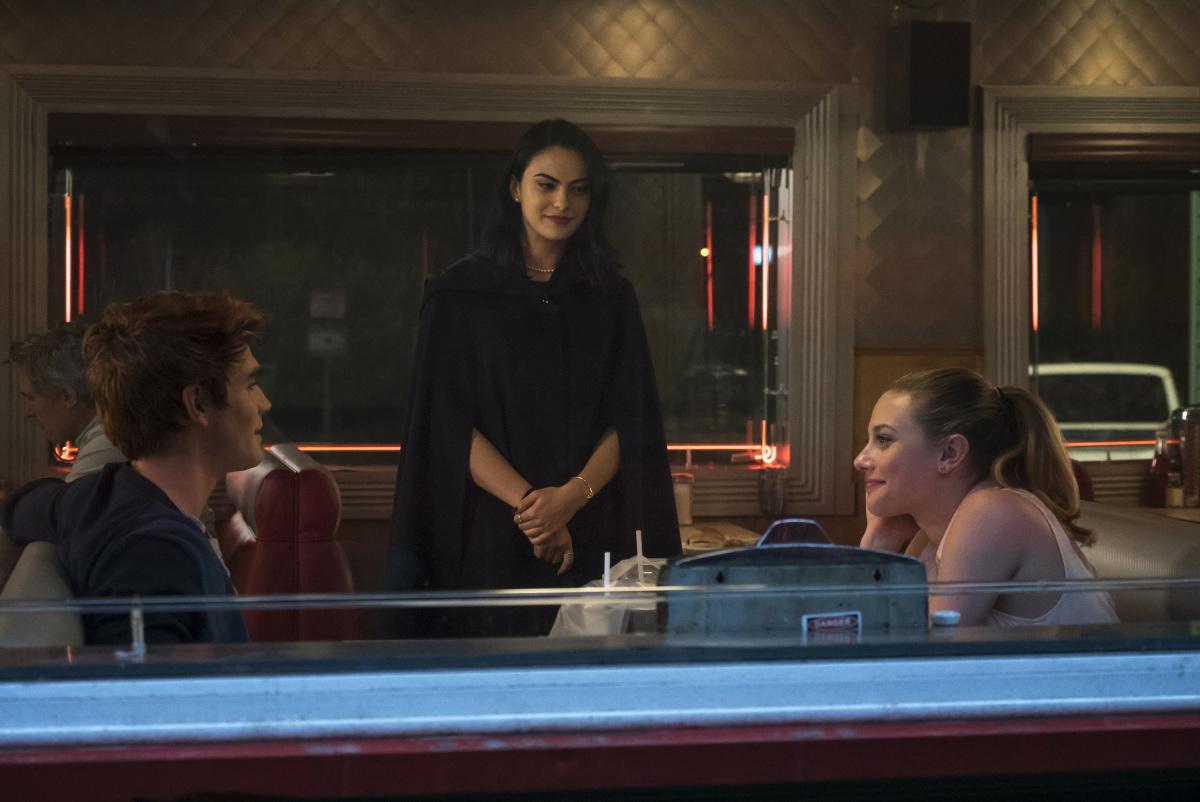Describing the CW’s “Riverdale” has presented critics with somewhat of a conundrum. Reviews have called the show everything from campy to edgy to melodramatic to “Gossip Girl” meets “Twin Peaks.” The single best word to encapsulate the show, however, is anachronistic. “Riverdale” attempts to balance borrowing from outdated source material, modernizing it and catering towards an audience of primarily teens and young adults. Whether or not “Riverdale”succeeds in this endeavor is debatable.
The inspiration behind “Riverdale” is the “Archie” comics, which have been around for about 75 years. The comics center around Archie Andrews and his crew of lovable friends and acquaintances and their escapades in the town of Riverdale. The core of this group of friends is comprised of Jughead Jones, the lazy, burger-addicted, anti-social best friend; Betty Cooper, the sweet girl next door; Veronica Lodge, the ritzy socialite and Reggie Mantle, Archie’s ambitious frenemy.
However, despite its middle class wholesome American-pie origins, the “Archie” comics have always had a little more to them than meets the eye. Within the original comics, there are socioeconomic class tensions in the rivalry between Betty and Veronica, with Veronica characterized as a snobby rich girl who needs to be humbled and Betty depicted as a smart, middle class underdog.
In recent years, the comics have become much more progressive through the inclusion of many more people of color, the introduction of the openly gay Kevin Keller and the official recognition of Jughead as asexual. In the earlier comics, there were rarely any long-term story arcs, with many plots standing alone and resolving within a few pages. They have changed this too: the “Archie: The Married Life” spin off, a continuation of the Archie Marries Veronica/Archie Marries Betty storyline from the main series, explored Archie’s potential married life with Veronica or Betty, presenting glimpses of Archie’s future with both women without resolving their rivalry. The “Married Life” series is a standout from the other comics; both alternative time lines involve aged- up characters, mystery and more adult themes. Regardless, some aspects of the main comics series have never changed throughout, such as Betty, Veronica and Archie’s love triangle and the group’s meet ups at Riverdale’s local burger joint, Pop’s.
Perhaps riffing off of the newer, contemporary comic books and the “Archie” comic’s penchant for quickly adapting to changing times, the CW added a few twists to their TV adaptation. The show expands upon some of the darker, more mature themes of the “Married Life” comics—within the first episode it is revealed that Veronica’s father is in jail for fraud, Archie’s parents are separated, Jughead is being bullied and Jason Blossom (a relatively minor character in the comics) has been murdered.
The murder mystery aspect of the show is a refreshing and welcome addition to the source material. Additionally, it is a very well done aspect of the show, as Betty (Lili Reinhart) and Jughead (Cole Sprouse) decide to become amateur sleuths and lead the viewers through an engaging investigation. Another one of the show’s strong points is its decision to dodge the never-ending, tedious love triangle between Archie (KJ Apa), Betty and Veronica (Camila Mendes). By escaping that cumbersome storyline, “Riverdale” opens itself up to new possibilities. Another positive aspect of the show is that “Riverdale” definitely made visible diversity a priority. This is not the predominantly white middle-class Riverdale of bygone times: Veronica is Latina (and possibly bisexual), Kevin Keller (Casey Cott) is openly gay, Jughead is homeless, Reggie Mantle (Ross Butler) is Asian-American and the mayor of Riverdale is a Black woman, as is Archie’s newest love interest. Valerie is a member of Josie and the Pussycats, a band that appears in the comics but plays a bigger role in “Riverdale” and is comprised solely of women of color.
However, while “Riverdale” has hit a few good notes, it finds most of its difficulties in attempting to tackle serious subject matter. (Note: Spoilers ahead for the first six episodes of “Riverdale”). Betty’s sister, Polly, was Jason’s love interest and from the beginning of the show she is said to be in some sort of asylum. Polly is characterized first as troubled, and then as suicidal before the show ultimately reveals that she is actually just pregnant. What could have been a great avenue to explore mental health instead becomes a convoluted soap opera subplot. “Riverdale”’s inability to confront and dissect such a seriously misrepresented issue as mental health is upsetting.
The way that queer people and relationships are dealt with on the show is disappointing. “Riverdale” seems to have an issue with spontaneous and unexplained kisses. In the first episode, Betty and Veronica share a random kiss that is never touched on again and then in episode six, Jughead (whom viewers hoped would provide some much-needed asexual representation in mainstream television) kisses Betty. This kiss is also not addressed until the next episode. Kevin Keller kisses a gang-affiliated man in an episode, and the viewer is led to believe that there will be some follow- up, but again there is none. Additionally, while Kevin Keller does get a lot of screen time, he is unfortunately relegated to the stereotypical role of ‘gay best friend.’ In the first episode it is revealed that Archie is in an illicit affair with his music teacher Ms. Grundy. The show does not really expound on the problematic, illegal and disturbing idea of a teacher preying on her students.
There is no getting around the fact that Riverdale is problematic in its attempt to be simultaneously a modern, trendy teen show and a dramatic murder mystery. But for all of its many faults, the show manages to still be enjoyable, perhaps because of its self-awareness. The show acknowledges its anachronistic nature, its campiness, and its melodrama. So to anyone thinking of giving “Riverdale” a view, please keep in mind that it is at its best when it does not take itself too seriously, and you will love it best if you take the same approach.






